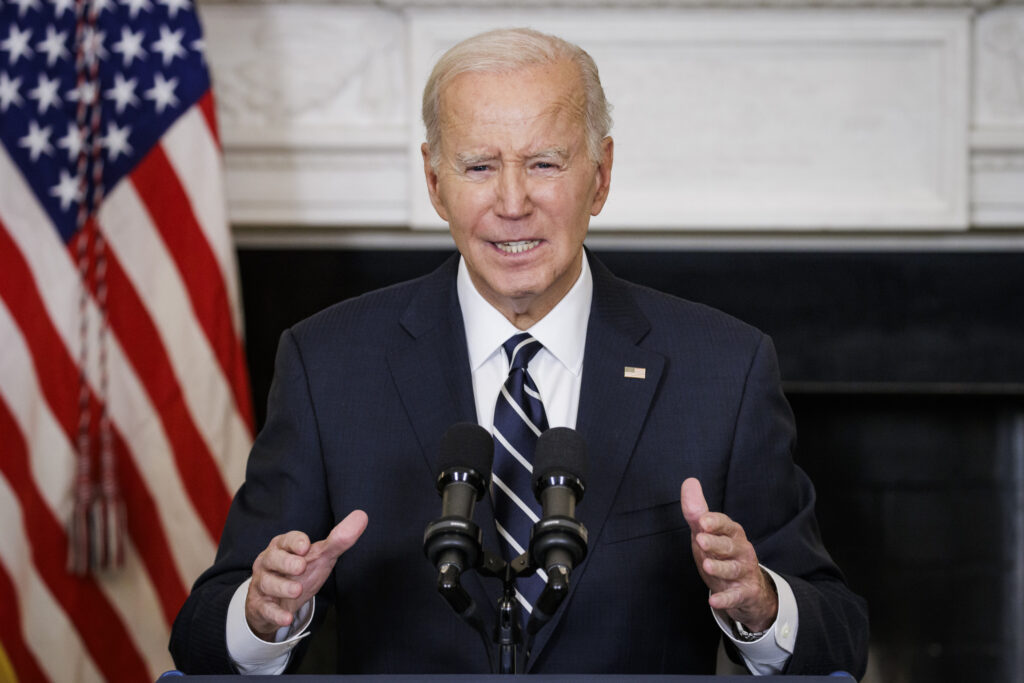Biden’s commitment to democracy President and his intention to advocate for Supreme Court reform during his final months in office. Speaking from the Oval Office on Wednesday, he stated, “I’m going to advocate for Supreme Court reform, as this is essential to our democracy.” This bold move represents a last-ditch effort from a lame duck president, urging a revision of foundational American principles. The implications of this initiative will soon place Vice President Kamala Harris in a challenging position, as she will be compelled to either support or reject these proposed changes.
Details of Proposed Reforms
While specifics of Mr. Biden’s formal announcement are still forthcoming, early reports suggest a few key proposals. Among these are calls for term limits for Supreme Court Justices, the establishment of an “enforceable” ethics code, and a constitutional amendment aimed at countering the Court’s recent 6-3 ruling on presidential immunity. Critics have labeled much of this agenda as radical and potentially unconstitutional.
In 2020, the left called for restructuring the Supreme Court after the originalist Justices gained a majority. Mr. Biden acknowledged potential backlash from these proposals. He established a commission to thoroughly examine the restructuring issue. This commission ultimately produced a comprehensive 294-page report. Revisiting this report would be wise for Mr. Biden in addressing these concerns, according to WSJ Print Subscription.
The Constitutional Challenge of Term Limits
One of the most contentious proposals is implementing term limits for Justices. The Constitution currently grants Justices life tenure. This raises questions about how such limits could be legally enacted. One suggestion from Biden’s commission involves Congress redefining the judicial role. Justices would transition to Senior Justices after eighteen years, ceasing ordinary functions and taking on different responsibilities.
This model parallels existing laws allowing federal judges to assume senior status without fully resigning. Critics argue that it sets a dangerous precedent. The commission’s report mentions retired Justices participating in appellate decisions. However, Congress’s ability to involuntarily restrict a duly appointed Justice’s role is questionable. This raises significant constitutional and ethical concerns about judicial independence.
Concerns Over Judicial Independence
The commission acknowledged the uncertainties surrounding these proposals, warning of the potential risks to the High Court’s role as a check on other branches of government if Congress attempts to restructure it. The report states, “In recent years, we have observed democratic governments ‘regress’ or ‘backslide’ concerning judicial independence.” Political scientists have noted that systems most resistant to this trend are those in which an electoral majority cannot easily alter fundamental institutional structures, including the judiciary.
This principle is a cornerstone of the American constitutional framework. In Federalist No. 78, Alexander Hamilton described the judiciary as the “least dangerous” branch, given its limited power compared to the executive and legislative branches. The executive wields “the sword,” overseeing prosecution and law enforcement, while Congress controls finances and sets rules for citizens. The judiciary’s primary function is to adjudicate disputes and maintain constitutional boundaries.

Kamala Harris’s Promotion Ignites Democratic Enthusiasm
Kamala Harris’s democratic enthusiasm at the beginning of the text: Vice President Kamala Harris’s promotion has ignited a surge…
Ethics Regulations and Political Implications
Concerns also arise regarding the separation of powers when considering Congress’s ability to impose “enforceable” ethics regulations on Justices. The notion that a partisan “ethics” bill could effectively depoliticize the Court is seen as far-fetched. For instance, Senator Sheldon Whitehouse’s plan to solicit public “complaints” against Justices for adjudication by lower judges invites a politically charged environment. His bill, which has passed the Senate Judiciary Committee, could lead to a deluge of spurious recusal requests aimed at undermining the authority of Justices who issue unpopular opinions.
The Complexity of Presidential Immunity
Furthermore, Biden’s proposal to override the Supreme Court’s ruling on presidential immunity (Trump v. U.S.) would require a constitutional amendment. Observers see this as a strategic political move, recognizing its unlikelihood of success while still appealing to public sentiment.
The Political Landscape Ahead
Last week, it seemed that Mr. Biden would endorse a Supreme Court overhaul to unify Democrats and appease the left ahead of his re-election campaign. However, by proposing these changes post-campaign, he places Vice President Harris in a challenging predicament. She must navigate the delicate balance of supporting these reforms to avoid alienating progressives while also not risking the ire of moderate voters. As the stakes rise leading into November, the challenge of maintaining the separation of powers—an essential element of American liberty—becomes increasingly complex. The responsibility now lies with Ms. Harris to navigate this political tightrope effectively.
Enroll now for a remarkable 3-year membership to Bloomberg News and The Wall Street Journal at an incredible 77% discount. Gain access to invaluable insights and expertise from two leading financial subscriptions. Don’t miss this opportunity to enhance your knowledge!

